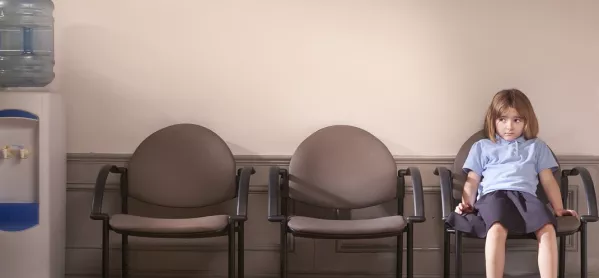“Grace yelled at Lily and Molly today,” my daughter told me towards the end of last term. “She said she can’t help it because she’s got mental health problems.
“And did you know Callum and Sophie go to a special group in assembly time because they’ve got mental health problems, too? Thomas says he’s going to pretend he’s got mental health problems so he can join, because he hates assembly.”
I closed my eyes and muttered a few words I keep saved up for moments like this. In the past year, I’ve lost count of the number of times I’ve heard primary-aged children use the phrase “mental health”.
Lack of mental health support
Of course, they could be hearing it on the news: reports of the diminishing mental health of children abound. If they haven’t read them, their teachers almost certainly will have.
We know that professional services are stretched to breaking point. Too many children waiting for help and not enough adults professionally trained to offer that help has left a vacuum in the system. And nature abhors a vacuum.
While the general consensus may be that schools are unequipped to deal with pupils’ mental health, it doesn’t stop some from having a go. And who can blame them? Staff see children who are unhappy, distressed or just plain disengaged, and desperately want to help. They fill out the referrals knowing full well that no one’s coming any time soon.
The panic zone
The only question is, is the help they are giving actually helping?
“I really think the ‘worry group’ she’s in has just made her worry more,” a mum friend told me last week, referring to her daughter’s situation. “She wouldn’t go and play at her friend’s the other day because she said it would ‘put her into her panic zone’. In the past, she’d just have gone.”
“In the past, she’d have got an extra guided reading session and never been introduced to the panic zone,” I replied.
Just a day later, I had a similar conversation with another friend whose son is going through a perfectionist phase and gets very upset when he makes mistakes.
“The teacher must have noticed, because she put him in an anxiety group,” she told me. “They even called it ‘the anxiety group’. He came home distraught, panicking that there was something wrong with him. I’m having a hard time convincing him there isn’t.”
Teachers are trained to teach
I’m not for a moment trying to trivialise children’s mental health, or to argue that we should go back to the days when kids were encouraged to zip up their emotions and get back to their woodwork. But surely what a teacher is fundamentally trained to do is teach, and she should, therefore, approach helping children with emotional problems with the kind of caution normally reserved for when Ofsted inspectors invite you in for a “chat”.
Because it’s easy to underestimate the influence we can wield. Children look to teachers to know how they’re doing in the same way that a toddler who falls over will look at their parent’s reaction to decide how much they’ve hurt themselves. If that adult stops reassuring you and starts singling you out for help (throwing in a few medicalised terms for good measure) then, for some children, the ground beneath their feet just gets a whole lot shakier.
And some will love it. Children don’t work like adults. A lot of them love the idea of some extra attention or gaining a new personality trait. A secondary teacher friend who was told that a child in her tutor group was acting strangely found upon investigation that she’d been looking up symptoms of schizophrenia. I once had a child tell me he couldn’t pick up litter because he was dyslexic.
So, before we start believing that two twilights on mindfulness have turned us into Sigmund Freud, maybe we should step back and focus on what we can do for children’s mental health: read to them, listen to them, bend the rules when we feel it’s required and wait for the professionals to take care of the rest.
Jo Brighouse is a pseudonym for a primary teacher in the West Midlands. She tweets @jo_brighouse




